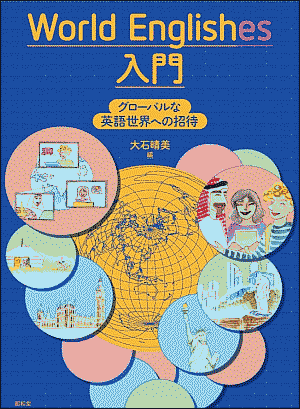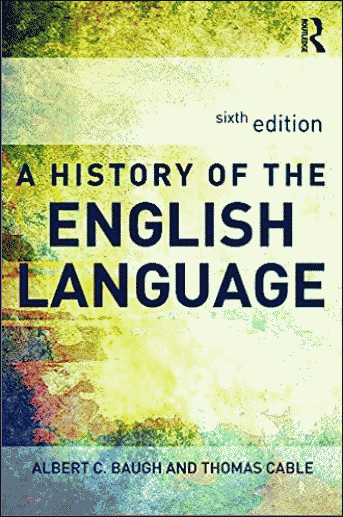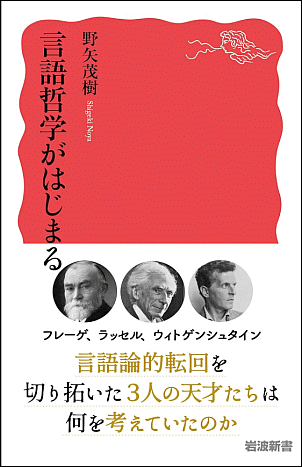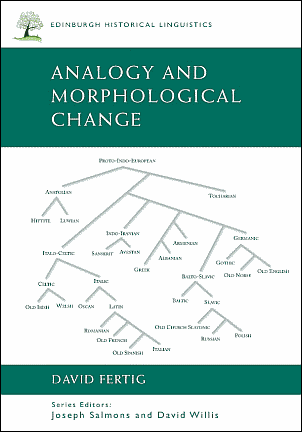hellog〜英語史ブログ / 2023-12
01 02 03 04 05 06 07 08 09 10 11 12 13 14 15 16 17 18 19 20 21 22 23 24 25 26 27 28 29 30 31
2026 : 01 02 03 04 05 06 07 08 09 10 11 12
2025 : 01 02 03 04 05 06 07 08 09 10 11 12
2024 : 01 02 03 04 05 06 07 08 09 10 11 12
2023 : 01 02 03 04 05 06 07 08 09 10 11 12
2022 : 01 02 03 04 05 06 07 08 09 10 11 12
2021 : 01 02 03 04 05 06 07 08 09 10 11 12
2020 : 01 02 03 04 05 06 07 08 09 10 11 12
2019 : 01 02 03 04 05 06 07 08 09 10 11 12
2018 : 01 02 03 04 05 06 07 08 09 10 11 12
2017 : 01 02 03 04 05 06 07 08 09 10 11 12
2016 : 01 02 03 04 05 06 07 08 09 10 11 12
2015 : 01 02 03 04 05 06 07 08 09 10 11 12
2014 : 01 02 03 04 05 06 07 08 09 10 11 12
2013 : 01 02 03 04 05 06 07 08 09 10 11 12
2012 : 01 02 03 04 05 06 07 08 09 10 11 12
2011 : 01 02 03 04 05 06 07 08 09 10 11 12
2010 : 01 02 03 04 05 06 07 08 09 10 11 12
2009 : 01 02 03 04 05 06 07 08 09 10 11 12
2023-12-31 Sun
■ #5361. 2023年,井上・堀田の YouTube でよく視聴された動画10本 [youtube][yurugengogakuradio][ranking][link][notice]
今年も英語史・英語学・言語学に関して様々な発信活動を行なってきました.YouTube チャンネル「井上逸兵・堀田隆一英語学言語学チャンネル」でも,毎週水・日の午後6時に動画を配信してきました.2023年中に配信してきた,元日の第89回から12月27日(水)に公開された第193回までの104回分を対象に,最もよく視聴された動画10本を紹介します.
1. 「#120. ゆる言語学ラジオ・水野太貴さんにお越しいただきました!」
2. 「#122. ゆる言語学ラジオ・水野太貴さん登場!第2弾・語に始まって語に終わる」
3. 「#124. ゆる言語学ラジオ・水野太貴さん登場!第3弾・ゆる言語学ラジオはゆるくない!」
4. 「#126. ゆる言語学ラジオ・水野太貴さん登場!第4弾・水野さんから見たこのチャンネル?」
5. 「#160. もりてつさんにお越しいただきました!!!人気 YouTuber,人気予備校講師,人気 TOEIC 等英語講師もりてつさんの礎は認知言語学!?」
6. 「#176. 国際的音声学者・川原繁人さんが語る音声学・音韻論の遍歴!」
7. 「#103. アメリカもイギリスもオーストラリアも英語は公用語ではない.ニュージーランドは英語は公用語.なぜ? 日本語が公用語のところはあるけど日本じゃない!」
8. 「#141. ベストセラー本,今井むつみ・秋田喜美『言語の本質』を語ってみました.」
9. 「#91. ゆるーい中世の英語の世界では綴りはマイルール?! through のスペリングは515通り! 堀田的ゆるさベスト10!」
10. 「#139. 現存する最古の英文の謎を堀田はどう読み解く?」
最上位にランクインした多くは,著名な方々との対談回でした.最もよく視聴されたのは,人気 YouTube/Podcast チャンネル「ゆる言語学ラジオ」のパーソナリティの1人である水野太貴さんとの飲み会対談回でした.2.5万回の再生数です.水野さんは今年も大活躍で,私自身「ゆる言語学ラジオ」に出演する機会もいただきまして,たいへんお世話になりました.本ブログの yurugengogakuradio の記事群もご参照ください.
YouTuber としてご活躍の英語予備校界で著名なもりてつさん,音韻論者・音声学者として破竹の勢いの川原繁人さんとの対談回も上位にランクイン.その後,井上さんと堀田からの話題も上位に食い込みました.視聴して下さった方々に御礼申し上げます.
本 YouTube チャンネルは,開設して1年10ヶ月ほどになります.来年2月末には2周年を迎えますが,その前の1月24日(水)には第200回の記念回も迎えることになります.この第200回には,初めて YouTube ライヴで配信しようと思っています.先日水曜日に公開された最新回「英語史,古英詩,文学史,英国文化エッセイをストレスゼロで縦横無尽に書きまくる唐澤一友さん(立教大学)第1弾!」の概要欄で告知している通り,「事前のご質問も大募集!」ですので,そちらのコメント欄などから寄せていただければと思います.
明日からの新年も「英語史をお茶の間に」届けるべく,英語史活動(hel活)を続けています.引き続きよろしくお願いいたします.
2023-12-30 Sat
■ #5360. 社会言語学×名前学=社会名前学 [sociolinguistics][onomastics][name_project][socio-onomastics][variation]
社会言語学 (sociolinguistics) × 名前学 (onomastics) = 社会名前学 (socio-onomastics)
ストレートで分かりやすい式である.「名前プロジェクト」 (name_project) の一環として名前学のハンドブック (The Oxford Handbook of Names and Naming) を読み進めているが,このような分野が確立していたのかと驚きつつ,目が輝いた.正確にいえばハンドブックを購入して目次を眺めたときに,該当する第25章の "Names in Society" というタイトルには気づいていたのだが,ハマりそうなので敢えて読むのを我慢していたところがある.いよいよ読み始めてしまった.
同章の冒頭に掲げられている章の要旨を読むだけで,恐ろしく興味を引かれる.以下に引用する.
Abstract
In socio-onomastics, names in society are examined. Socio-onomastics can be defined as a sociolinguistic study of names. Above all, it explores the use and variation of names. The socio-onomastic research method takes into account the social, cultural, and situational field in which names are used. In this chapter, the methodology and major advancements in socio-onomastics are presented and discussed. In addition, an overview of the epistemological background is presented, as well as a brief look at the state of the art. Name variation is the core concern in socio-onomastics. In this chapter, the synchronic and especially social variation are discussed in more detail. In addition to social ('sociolect') variation, situational ('style lect') variation is presented. Also folk onomastic research as a sub-category in socio-onomastics is presented. Folk onomastics studies people's beliefs and perceptions of names and name use.
いかがだろうか.この要旨の直下にはキーワードがいくつか挙げられており,ほとんど我慢することができない.
Keywords: socio-onomastics, folk onomastics, toponymic competence, first name fashion, place-names, personal names, commercial names
・ Ainiala, Terhi. "Names in Society." Chapter 25 of The Oxford Handbook of Names and Naming. Ed. Carole Hough. Oxford: OUP, 2016. 371--81.
2023-12-29 Fri
■ #5359. 小林めぐみ先生との対談 --- 映画と World Englishes [voicy][heldio][notice][world_englishes][we_nyumon][indian_english][elt][efl]
Voicy heldio にて小林めぐみ先生(成蹊大学)との対談回を配信しています.「#936. 映画と World Englishes は相性がよい! --- 小林めぐみ先生との対談」と題して,映画を用いた World Englishes の英語教育・言語教育というテーマでお話しいただいています.本編は10分ほどです.ぜひお聴きください.
昨今は NetFlix や YouTube などで配信される映画やドラマを通じて,世界の様々な英語変種が身近に聞かれるようになってきました.このような資源は,英語学習・教育(特にリスニング)の教材としても役立ちますし,世界各地の言語事情や英語事情を理解する上でも貴重です.小林先生はこの点に注目し,大学の英語や(社会)言語学の授業で,積極的に映画と World Englishes を導入されているとのことでした.そして,本編の最後では,小林先生の推しが「○○英語(映画)」であることが明らかにされます.皆さんの推しの英語変種は何でしょうか?
今回の小林先生との対談は第2弾でして,前回の第1弾は先日12月12日に「#925. 著者と語る『World Englishes 入門』(昭和堂,2023年) --- 小林めぐみ先生との韓国の英語をめぐる対談」として配信しています.こちらも今回の内容と関連が深いので,ぜひお聴きいただければ.また,関連する hellog 記事「#5345. 「韓国の英語」 --- 大石晴美(編)『World Englishes 入門』(昭和堂,2023年)の第10章」 ([2023-12-15-1]) も合わせてどうぞ.

・ 大石 晴美(編) 『World Englishes 入門』 昭和堂,2023年.
2023-12-28 Thu
■ #5358. 2023年 heldio の推し配信回は? --- ぜひ投票をお願いします [voicy][heldio][notice][khelf][link]
「2023年 heldio の推し配信回」を決める投票を,2023年12月25日(月)より12月31日(日) 23:59 までこちらの投票コーナーにて受け付けています(あるいは以下のQRコードよりどうぞ).ぜひ皆さんのマイベスト10を選んでいただければ幸いです.

上記の通り,「2023年 heldio の推し配信回」のランキングを決めるリスナー投票が大晦日の夜までオープンしています.今年の元日配信 #580 から12月24日配信の #937 までの計358回を対象にし,1人10件まで選択できる仕様です.
hellog 読者や heldio リスナーの皆さんにとっては,選択肢が多くて選びにくいかもしれませんし,すべての配信回を聴いているわけでもないかと思います.10件「まで」選択できるということですので,投票はマイベスト1やマイベスト3などにとどめていただいてもかまいません.参考までに Voicy のアナリティクスによる今年のランキングをいくつか公開していますので,ご参照ください.
・ 「#5353. 2023年の heldio 配信回のランキング --- リスナー数編」 ([2023-12-23-1])
・ 「#5354. 2023年の heldio 配信回のランキング --- コメント数編」 ([2023-12-24-1])
・ 「#5355. 2023年の heldio ではこんな配信回も注目されました --- 新規リスナー数といいね数編」 ([2023-12-25-1])
ただ,上に挙げたランキングはあくまで「客観的な数値に基づいた」ランキングです.これとは別に,リスナーの皆さんの各々の関心,思い入れ,ツボもあるかと思いますので,その辺りが反映されたリスナーによる「2023年 heldio の推し配信回」ランキングができあがるとおもしろいなと期待しています.
あわせて以下の情報も投票の参考になるかもしれませんので挙げておきます.
・ 「#5101. 2023年1月--3月の heldio 放送回ランキング」 ([2023-04-15-1])
・ note でのランキング記事
・ リスナー umisio さんによる note での振り返り記事
- 「令和5年 (2023年) の heldio を振り返る 第1四半期(1--3月)編」
- 「令和5年 (2023年) の heldio を振り返る 第2四半期(4--6月)+7月 まるでカンブリア紀!?」
- 「令和5年 (2023年) の heldio を振り返る 第3四半期(8--9月) ※7月は前回に含めた」
・ リスナー kitako さんによる Instagram での heldio 配信回紹介(カテゴリー化もなされています)
また,12月25日(月)には投票を呼びかける「#938. 2023年 heldio の推し配信回の投票を!」も配信しています.ぜひお聴きください.
私自身も昨日投票しました.皆さんの投票をお待ちしています!
2023-12-27 Wed
■ #5357. 井出新先生との対談 --- 新著『シェイクスピア それが問題だ!』(大修館,2023年)をめぐって [notice][voicy][heldio][shakespeare][review]

同僚の井出新先生(慶應義塾大学文学部英米文学専攻)の新著『シェイクスピア それが問題だ!』(大修館,2023年)について,hellog でも「#5316. Shakespeare の作品一覧(執筆年代順) --- 井出新(著)『シェイクスピア それが問題だ!』(大修館,2023年)より」 ([2023-11-16-1]) や「#5323. Shakespeare 時代の主な劇団 --- 井出新(著)『シェイクスピア それが問題だ!』(大修館,2023年)より」 ([2023-11-23-1]) で取り上げてきました.
このたび新著をめぐって井出先生との Voicy heldio での対談が実現しましたので,お知らせします.「#934. 『シェイクスピア,それが問題だ!』(大修館,2023年) --- 著者の井出新先生との対談」(33分ほどの尺)です.ぜひお聴きください.
対談のなかでは,
(1) 本書の出版や執筆の舞台裏
(2) 関連する heldio 配信回「#898. 井出新先生のご著書の紹介 --- 『シェイクスピア それが問題だ!』(大修館,2023年)」でリスナーさんから寄せられてきた大きな問い「なぜシェイクスピアは世界でこれほど突出した劇作家として知られているのか?」への回答
(3) 『ハムレット』における conscience の文献学的解釈
などが語られました.とりわけ (3) の話題は必聴です.文献学的解釈の醍醐味を味わっていただければと思います.
井出先生には,これまでも Shakespeare や初期近代の英語について英語史上興味深いお題を出していただく機会があり,例えば hellog でも「#4309. shall we の代わりとしての shall's (= shall us)」 ([2021-02-12-1]) などで触れています.今回の対談でもいろいろなお題を出していただきました.リラックスした雰囲気ながらも頭を刺激され続けた,楽しすぎる対談でした.井出先生,またよろしくお願いします!
・ 井出 新 『シェイクスピア それが問題だ!』 大修館,2023年.
2023-12-26 Tue
■ #5356. 岡本広毅先生の NewsPicks のトピックス「RPGで知る西洋の歴史」 [notice][rpg][literature][medievalism]
中世英語英文学とその現代的意義を探究している岡本広毅先生(立命館大学)が,1ヶ月ほど前より NewsPicks にて「RPGで知る西洋の歴史」と題する興味深いトピックス記事の投稿を始めています.トピックスの説明によると,
エルフ,世界樹,エクスカリバー.
RPG や映画などでわたしたちが親しむこれらの言葉の起源が西洋の物語にあることは良く知られています.このような幻想的なアイテムや魔法は単なるフィクションとして片付けられるようなものではなく,西洋文明や英語文化の根幹にあるものです.このトピックスでは,世界的に愛されてきた名作ゲームや映画,物語でお馴染みの言葉から,西洋の基本的教養を味わいましょう.
とあります.早速読みたくなる方が多いのではないでしょうか.現時点で3本の記事が公開されています
1. ゲーム世界と西洋異国体験 --- RPGの鉱脈(2023年11月14日)
2. 剣と魔法と暗黒 --- 『クロノ・トリガー』にみる西洋の歴史(2023年11月28日)
3. モンスターの息づく世界 --- 野に返りし〈はぐりん〉を偲んで(2023年12月12日)
いずれも読者を引きつける記事ですが,とりわけ2つめの『クロノ・トリガー』に関する記事に引きつけられました.

この記事の後半で「中世」とは何かという話題が取り上げられています.そこで,岡本先生は medieval という単語の多義性に注目します.
ただ,中世とは単に歴史の一期間を指すだけでありません.手元の辞書で,「中世の」を意味する英語の形容詞 "medieval" を調べてみると,時代区分の次に「古臭い」「旧式の」といった後ろ向きの意味が出てきます.より専門的な辞書をみてみると「無知」「残酷」「野蛮」といったネガティブな語義が並びます."get medieval" というフレーズにおいては「中世風になる」ではなく「暴力的になる」ことを意味します.このあからさまな意味の凋落には当然疑問を覚えることでしょう.「クラシック」や「モダン」 といった語から連想するイメージを考慮すればなおさらです.
これを受け,先日12月19日に Voicy heldio で「#932. get medieval 「暴力を振るう」--- 岡本広毅さんの NewsPicks トピックスより」と題する回を配信しました.この配信回の第5チャプターには,なんと岡本先生ご本人が出演されていますので必聴です.同日の夜には,プレミアムリスナー限定配信チャンネル「英語史の輪」 (helwa) のほうでも続編として「【英語史の輪 #69】get medieval の続き」を配信しました(こちらには岡本先生は出演されていませんのでご注意).medieval という単語とその周辺については,もっといろいろと調べてみたいと思っています.
さて,岡本先生にはこれまでも heldio や hellog でおおいにお世話になっています.以下にリンクを張っておきますので,ぜひ渉猟していただければ.
【 heldio 対談回 】
・ heldio 「#173. 立命館大学,岡本広毅先生との対談:国際英語とは何か?」 (2021/11/20)
・ heldio 「#386. 岡本広毅先生との雑談:サイモン・ホロビンの英語史本について語る」 (2022/06/21)
・ heldio 「#478. 英語ヴァナキュラー談義(岡本広毅&堀田隆一)」 (2022/09/21)
・ heldio 「#544. 岡本広毅先生と『グリーン・ナイト』とその原作の言語をめぐって対談しました」
・ heldio 「#545. ヴァナキュラーな『グリーン・ナイト』(岡本&堀田の対談)」 (2022/11/27)
・ heldio 「#932. get medieval 「暴力を振るう」--- 岡本広毅さんの NewsPicks トピックスより (2023/12/19)
【 hellog 関連回 】
・ 「#4962. 岡本広毅先生と『グリーン・ナイト』とその原作の言語をめぐって対談しました」 ([2022-11-27-1])
・ 「#4600. egges or eyren:なぜ奥さんは egges をフランス語と勘違いしたのでしょうか?」 ([2021-11-30-1])
・ 「#4591. 立命館大学での講演「世界の "English" から "Englishes" の世界へ」を終えました」 ([2021-11-21-1])
2023-12-25 Mon
■ #5355. 2023年の heldio ではこんな配信回も注目されました --- 新規リスナー数といいね数編 [voicy][heldio][ranking][notice][link][khelf]
一昨日の「#5353. 2023年の heldio 配信回のランキング --- リスナー数編」 ([2023-12-23-1]),および昨日の「#5354. 2023年の heldio 配信回のランキング --- コメント数編」 ([2023-12-24-1]) に続き,2023年の heldio 配信回を振り返ります.今回は (1) 「新規リスナー」が多く参入した配信回と,(2) 「いいね」を多くいただいた配信回に基づいた2つのリストを提示します.いずれのランキングでも上位の配信回は一昨日のリスナー数に基づいたランキング表と重なるものが多いので,あえて後者ランキング表に含まれないものを選び,上位10件ずつを示します.
お聴きでない回,おもしろそうな回があれば,ぜひ年末年始にお時間のあるときにお聴きください.
(1) 「新規リスナー」の数に基づく上位配信回
1. 「#866. 「湯」は1語で hot water は2語 --- これは何を意味する?」 (2023/10/14)
2. 「#828. 『英語語源辞典』(研究社,1997年)ってスゴい --- 研究社会議室での対談 (1)」 (2023/09/06)
3. 「#819. 古英語地名入門 with 小河舜さん」 (2023/08/28)
4. 「#680. なぜ「日本人」は Japanian などではなく Japanese なの? --- 青木輝さんとの対談」 (2023/04/11)
5. 「#654. 副業すると tax 絡みの task が増えまして --- 何だか似ている2語」 (2023/03/16)
6. 「#650. 英語史の知恵が AI に負けない3つの理由」 (2023/03/12)
7. 「#614. 朝ルーチンを確立して自動化する --- routine の話し」 (2023/02/04)
8. 「#604. なぜ慣用句では冠詞が省略されるの? --- for example や from hand to mouth など」 (2023/01/25)
9. 「#590. 日本は言語多様性指数がきわめて低い国」 (2023/01/11)
10. 「#589. come of age 「成人する」」 (2023/01/10)
(2) 「いいね」の数に基づく上位配信回
1. 「#756. "the title of the book" か "the book's title" か? with 川島さん --- 「khelf 声の祭典」第10弾」 (2023/06/26)
2. 「#647. メールの件名でみる RE: って何ですか?」 (2023/03/09)
3. 「#662. 印欧祖語の故郷をめぐるブナ問題」 (2023/03/24)
4. 「#809. 「言語化」という表現が流行っているようですが」 (2023/08/18)
5. 「#876. ゼミ合宿収録シリーズ (7) --- 情報構造入門」 (2023/10/24)
6. 「#585. ウクライナ人がウクライナ語を学び始めてるってどういうこと? --- 国家と言語の複雑な関係」 (2023/01/06)
7. 「#637. なぜ「アメリカ語」ではないの?」 (2023/02/27)
8. 「#875. 『英語語源辞典』を読むシリーズ (1) --- 藤原くんと foot を語る」 (2023/10/23)
9. 「#584. 旧ユーゴの言語事情」 (2023/01/05)
10. 「#631. 最近よく聞く generative って何? --- 語源探究回」 (2023/02/21)
2023-12-24 Sun
■ #5354. 2023年の heldio 配信回のランキング --- コメント数編 [voicy][heldio][ranking][notice][link][khelf]
昨日の記事 ([2023-12-23-1]) に引き続き,2023年の heldio 配信回のランキングを提示します.今日お示しするのは,寄せていただいたコメント数に基づく一風変わったランキング表です.今年は heldio のコメント欄がおおいに盛り上がり,リスナーコミュニティというべきものが徐々にできあがってきた年でした.コメント欄の盛り上がりをきっかけに聴いてみた,というような配信回もあったかもしれません.
その配信回がおもしろかったかどうかは別として,リスナーの皆さんから多くのコメントが寄せられてきたのには理由がありそうです.例えばトップに輝いた「#821. ニックネームを語ろう --- 9月3日(日) 19:00--20:00 の生放送のためにリスナーの皆さんへの呼びかけ」には112件ものコメントが付けられましたが,これは後日の生放送のために「ニックネーム」をお題としてリスナーの皆さんにコメント投稿を呼びかけたからです.第2位の「#800. 「英語は(私にとって)○○です」を募集します --- (日)の生放送に向けたリスナー参加型企画」も意見を募集する配信回でした.そのほか対談回もコメントがよく集まる傾向があるようです.
昨日のランキング表とあまり重なりがないラインナップとなっています.年末にかけて,ぜひいくつか聴いてみてください.
1. 「#821. ニックネームを語ろう --- 9月3日(日) 19:00--20:00 の生放送のためにリスナーの皆さんへの呼びかけ」 (2023/08/30)
2. 「#800. 「英語は(私にとって)○○です」を募集します --- (日)の生放送に向けたリスナー参加型企画」 (2023/08/09)
3. 「#637. なぜ「アメリカ語」ではないの?」 (2023/02/27)
4. 「#771. 「言語は○○のようだ」 --- 概念メタファーをめぐるリスナー参加型企画のご案内」 (2023/07/11)
5. 「#872. 変なアルファベット表を作ろうと思っています --- khelf 企画」 (2023/10/20)
6. 「#650. 英語史の知恵が AI に負けない3つの理由」 (2023/03/12)
7. 「#704. なぜ日本語には擬音語・擬態語が多いのか? --- 森田まさにゃん,五所さん,藤原くんと音象徴を語る爆笑回」 (2023/05/05)
8. 「#773. 小河舜さんとの新シリーズの立ち上げなるか!?」 (2023/07/13)
9. 「#686. 英語史の知識は,英語の先生が英語を教えるときに本当に役立つのか?」 (2023/04/17)
10. 「#672. フレッシュに英語史,fresh に hel活」 (2023/04/03)
11. 「#794. 辞書で同一形態の単語に対して別見出しを立てるかどうか問題」 (2023/08/03)
12. 「#702. いいネーミングとは? --- 五所万実さん,藤原郁弥さん,まさにゃんとの対談」 (2023/05/03)
13. 「#809. 「言語化」という表現が流行っているようですが」 (2023/08/18)
14. 「#690. なぜ leave の過去・過去分詞が left なの?」 (2023/04/21)
15. 「#836. ゼロから学ぶはじめての古英語 --- Part 3 with 小河舜さん and まさにゃん」 (2023/09/14)
16. 「#646. 「~を除いて」を意味する前置詞 save」 (2023/03/08)
17. 「#667. 五所万実さんとの対談 --- 商標言語学とは何か?」 (2023/03/29)
18. 「#883. 著者と語る『World Englishes 入門』(昭和堂,2023年) --- 今村洋美先生とのアメリカ・カナダ英語をめぐる対談」 (2023/10/31)
19. 「#635. 英語と日本語の共通点って何かありますか?--- まさにゃん&青木くんと第2弾」 (2023/02/25)
20. 「#919. リスナーの皆さんにお伺いです --- heldio を聴き始めたきっかけは何ですか?」 (2023/12/06)
21. 「#669. 英語史クイズ with まさにゃん」 (2023/03/31)
22. 「#670. 英語史クイズ with まさにゃん(続編)」 (2023/04/01)
23. 「#882. ゼミ合宿収録シリーズ (8) --- シンガポールの英語事情」 (2023/10/30)
24. 「#633. 答えを出すより問いを立てよ」 (2023/02/23)
25. 「#678. 4月7日に「英語に関する素朴な疑問 千本ノック」を heldio 生放送でお届けしました」 (2023/04/09)
26. 「#829. ゼロから学ぶはじめての古英語 --- Part 2 with 小河舜さん and まさにゃん」 (2023/09/07)
27. 「#654. 副業すると tax 絡みの task が増えまして --- 何だか似ている2語」 (2023/03/16)
28. 「#656. 現在から過去にさかのぼる英語史」 (2023/03/18)
29. 「#885. 慶早戦か早慶戦か? --- khelf 藤原くんと寺澤さんとの雑談」 (2023/11/02)
30. 「#903. "potato kid" のエピソード --- 『スペリングの英語史』の紹介」 (2023/11/20)
2023-12-23 Sat
■ #5353. 2023年の heldio 配信回のランキング --- リスナー数編 [voicy][heldio][ranking][notice][khelf][sobokunagimon][link][yurugengogakuradio][note]
本ブログの姉妹版・音声版というべき Voicy 「英語の語源が身につくラジオ」 (heldio)では,今年も1月1日から本日12月23日まで,毎朝6時に英語史の話題を声でお届けしてきました.元日配信の #580 から昨日配信の #935 までの計356回を2023年分の配信回とみなし,向こう数日をかけてランキング表や注目配信回のリストを提示していきます.そして,来週中,年末までの1週間で,リスナーの皆さんや hellog をお読みの皆さんに「2023年 heldio の推し配信回」を決めてもらう投票を行ないたいと思います.お付き合いの程よろしくお願いします.(過去のすべての配信回の一覧はこちらよりアクセスできます.)
以下に掲げる一覧は,Voicy のアナリティクスより提供された,当該配信回を聴取した「合計リスナー」数に基づいたベスト30のランキング表です.今年は人気 YouTube/Podcast チャンネル「ゆる言語学ラジオ」に出演させていただいたこともあり,そちらから heldio へリスナーさんの流入があり,結果として「ゆる言語学ラジオ」関連回は多くの方々に聴いていただきました.この事情がランキング上位に反映しているようです.そのほか khelf(慶應英語史フォーラム)メンバーとの対談回や khelf による企画などにも注目が集まりました.「素朴な疑問」系の配信回も堅調でした.
ぜひこちらのランキング表を参考に,年末にかけて聴き逃していた回,改めて興味を抱いた回などをお聴きいただければ幸いです.
1. 「#705. ゆる言語学ラジオにお招きいただき初めて出演することに!」 (2023/05/06)
2. 「#729. なぜ英語を学ばなければならないの? --- 中学生のための英語史」 (2023/05/30)
3. 「#595. heah/hih/high --- 「ゆる言語学ラジオ」から飛び出した通時的パラダイム」 (2023/01/16)
4. 「#698. 先生,アルファベットの歴史を教えてください! --- 寺澤志帆さんとの対談」 (2023/04/29)
5. 「#822. ゼロから学ぶはじめての古英語 --- Part 1 with 小河舜さん and まさにゃん」 (2023/08/31)
6. 「#689. 『言語沼』 --- ゆる言語学ラジオから飛び出した言語本」 (2023/04/20)
7. 「#711. なぜ be going to は未来を意味するの? --- khelf 広報の渡邉さんとの対談」 (2023/05/12)
8. 「#621. なぜ new something ではなく something new なの?」 (2023/02/11)
9. 「#779. 「ゆる言語学ラジオ」で evident (evidence) について触れなかったこと --- 現在分詞なのに受け身の意味になっているゾ!」 (2023/07/19)
10. 「#628. 古英語の単語はどれくらい現代英語に受け継がれているの?」 (2023/02/18)
11. 「#625. Turkey --- トルコと七面鳥の関係」 (2023/02/15)
12. 「#784. なぜ進行形は be + -ing なのですか? --- リスナーさんからの素朴な疑問」 (2023/07/24)
13. 「#725. なぜ命令文には主語が現われないの?」 (2023/05/26)
14. 「#707. 先生,なんで doubt には発音しないのに <b> が入ってるんですか? --- 寺澤志帆さんとの対談」 (2023/05/08)
15. 「#735. 古英語音読 --- マタイ伝「種をまく人の寓話」より毒麦の話」 (2023/06/05)
16. 「#606. 英語のスペリングは漢字である」 (2023/01/27)
17. 「#715. ケルト語仮説」 (2023/05/16)
18. 「#602. なぜ両足で歩くのに on feet ではなくて on foot なの?」 (2023/01/23)
19. 「#709. なぜ同一単語に多くのスペリングが存在し得たのか? --- 「ゆる言語学ラジオ」出演第2回で話題となった515通りの through の怪」 (2023/05/10)
20. 「#872. 変なアルファベット表を作ろうと思っています --- khelf 企画」 (2023/10/20)
21. 「#688. なぜ不定詞には to 不定詞 と原形不定詞の2種類があるの?」 (2023/04/19)
22. 「#684. 英語史でみる不規則動詞の仕組み --- 藤原郁弥さんとの対談」 (2023/04/15)
23. 「#618. 英語史の時代区分」 (2023/02/08)
24. 「#708. unmummied --- 「ゆる言語学ラジオ」初出演回で話題となった縦棒16連発を記録した単語」 (2023/05/09)
25. 「#724. -er は本当に行為者接尾辞なの?」 (2023/05/25)
26. 「#745. 日本人よ,文字論に目覚めよ」 (2023/06/15)
27. 「#687. 「子音字+y は y を i に変えて -ed」 --- その規則いったい何?」 (2023/04/18)
28. 「#598. メタファーとは何か? 卒業生の藤平さんとの対談」 (2023/01/19)
29. 「#626. 陶磁器の china と漆器の japan --- 産地で製品を表わす単語たち」 (2023/02/16)
30. 「#734. Japan, Japanese, Nippon の語源と英語での初出年代」 (2023/06/04)
過去の heldio のランキングやその他の配信回一覧については,
・ 「#4996. 今年1年間でよく聴かれた放送 --- Voicy 「英語の語源が身につくラジオ (heldio)」より」 ([2022-12-31-1])
・ 「#5101. 2023年1月--3月の heldio 放送回ランキング」 ([2023-04-15-1])
・ note のランキング記事
・ リスナー umisio さんによる note での振り返り記事
- 「令和5年 (2023年) の heldio を振り返る 第1四半期(1--3月)編」
- 「令和5年 (2023年) の heldio を振り返る 第2四半期(4--6月)+7月 まるでカンブリア紀!?」
- 「令和5年 (2023年) の heldio を振り返る 第3四半期(8--9月) ※7月は前回に含めた」
などもご参照ください.
2023-12-22 Fri
■ #5352. なぜ英語を学ばなければならないの? --- 中学生からの反響 [sobokunagimon][voicy][heldio][helwa][notice][hel_education][hel_for_junior_high_school_students]
本ブログの音声版というような位置づけで,毎朝 Voicy 「英語の語源が身につくラジオ」 (heldio)より英語史関連の話題を発信しています.目下 Voicy による音声配信に新しい可能性を見出しています.まず,上記2つの関連する配信回をお聴きいただければと思います(下に挙げるものは追加も含め3つの配信へのリンクです).
(1) 「#729. なぜ英語を学ばなければならないの? --- 中学生のための英語史」(2023年5月30日配信.上記の左の配信回です.)
(2) 「#929. なぜ英語を学ばなければならないの? --- 中学生からの反響」(2023年12月16日配信.上記の右の配信回です.)
(3) 「【英語史の輪 #68】今朝の中学生からの生の声をもっとお届け!」(2023年12月16日配信.(2) の続編ですが,こちらは有料のプレミアムリスナー限定配信チャンネルでの配信となっています.)
今年の5月末に,中学生のリスナーは事実上ゼロであることを知りながら,間接的に声が届く可能性に期待して (1) を配信しました.実際には,中学生のみならず一般リスナーの皆さんにも聴いて,考えていただきたい内容でお話ししました.配信直後よりリスナーの皆さんより多くの反響をいただき,これまでの heldio 配信回のなかでも飛び抜けてよく聴かれる回となりました.
そんな折,先日英語教員のリスナーの方より連絡がありました.中学校の生徒たちにこの配信回を聴いてもらい,意見を書いてもらうという授業課題を出すことを考えている,とのことでした.ぜひどうぞ,むしろよろしくお願いしますと返答したところ,後日,同先生より,中学1年生120名からの回答・意見を得たとのことで,その匿名化された文章を共有させていただきました.
私自身は(意外にも)多くの中学生に本当に声が届いた!という喜びを感じましたし,このような課題を思いつき実施した同先生の熱意にも感服しました.そして,何よりも生徒さん一人一人が,配信回を聴いた上で,じっくりと「なぜ英語を学ばなければならないの?」という問いに向き合った様子が,文章からはっきりと伝わってきことに,感動を覚えました.
ぜひこの気持ちを生徒さんや先生にフィードバックしたいと思い,中学校の英語教員経験のある khelf(慶應英語史フォーラム)の寺澤志帆さんとともに,(2) の配信回を収録し,公開したという次第です.
英語史研究者冥利,Voicy heldio パーソナリティ冥利に尽きる経験でした.ありがとうございました.
英語の先生方,本ブログをお読みの方々,heldio リスナーの皆さん,ぜひ機会がありましたら中学生(のみならず小学生,高校生,大学生など)に上記の配信回を聴いてもらえるよう促していただければ幸いです.
2023-12-21 Thu
■ #5351. OED の解説でみる併置総合 parasynthesis と parasynthetic [terminology][morphology][word_formation][compound][compounding][derivation][suffix][parasynthesis][adjective][participle][noun][oed]
「#5348. the green-eyed monster にみられる名詞を形容詞化する接尾辞 -ed」 ([2023-12-18-1]) の記事で,併置総合 (parasynthesis) という術語を導入した.
OED の定義によると "Derivation from a compound; word-formation involving both compounding and derivation." とある.対応する形容詞 parasynthetic とともに,ギリシア語の強勢に関する本のなかで1862年に初出している.OED では形容詞 parasynthetic の項目のほうが解説が詳しいので,そちらから定義,解説,例文を引用する.
Formed from a combination or compound of two or more elements; formed by a process of both compounding and derivation.
In English grammar applied to compounds one of whose elements includes an affix which relates in meaning to the whole compound; e.g. black-eyed 'having black eyes' where the suffix of the second element, -ed (denoting 'having'), applies to the whole, not merely to the second element. In French grammar applied to derived verbs formed by the addition of both a prefix and a suffix.
1862 It is said that synthesis does, and parasynthesis does not affect the accent; which is really tantamount to saying, that when the accent of a word is known..we shall be able to judge whether a Greek grammarian regarded that word as a synthetic or parasynthetic compound. (H. W. Chandler, Greek Accentuation Preface xii)
1884 That species of word-creation commonly designated as parasynthetic covers an extensive part of the Romance field. (A. M. Elliot in American Journal of Philology July 187)
1934 Twenty-three..of the compound words present..are parasynthetic formations such as 'black-haired', 'hard-hearted'. (Review of English Studies vol. 10 279)
1951 Such verbs are very commonly parasynthetic, taking one of the prefixes ad-, ex-, in-. (Language vol. 27 137)
1999 Though broad-based is two centuries old, zero-based took off around 1970 and missile lingo gave us land-based, sea-based and space-based. A discussion of this particular parasynthetic derivative is based-based. (New York Times (Nexis) 27 June vi. 16/2)
研究対象となる言語に応じて parasynthetic/parasynthesis の指す語形成過程が異なるという事情があるようで,その点では要注意の術語である.英語では接尾辞 -ed が参与する parasynthesis が,その典型例として挙げられることが多いようだ.ただし,-ed parasynthesis に限定して考察するにせよ,いろいろなパターンがありそうで,形態論的にはさらに細分化する必要があるだろう.
2023-12-20 Wed
■ #5350. the green-eyed monster にみられる名詞を形容詞化する接尾辞 -ed (3) [morphology][word_formation][compound][compounding][derivation][suffix][parasynthesis][adjective][participle][oed][conversion][johnson][coleridge]
一昨日と昨日に引き続き,green-eyed のタイプの併置総合 (parasynthesis) にみられる名詞に付く -ed について (cf. [2023-12-18-1], [2023-12-19-1]) .
OED の -ed, suffix2 より意味・用法欄の解説を引用したい.
Appended to nouns in order to form adjectives connoting the possession or the presence of the attribute or thing expressed by the noun. In modern English, and even in Middle English, the form affords no means of distinguishing between the genuine examples of this suffix and those participial adjectives in -ed, suffix1 which are ultimately < nouns through unrecorded verbs. Examples that have come down from Old English are ringed:--Old English hringede, hooked: --Old English hócede, etc. The suffix is now added without restriction to any noun from which it is desired to form an adjective with the sense 'possessing, provided with, characterized by' (something); e.g. in toothed, booted, wooded, moneyed, cultured, diseased, jaundiced, etc., and in parasynthetic derivatives, as dark-eyed, seven-hilled, leather-aproned, etc. In bigoted, crabbed, dogged, the suffix has a vaguer meaning. (Groundless objections have been made to the use of such words by writers unfamiliar with the history of the language: see quots.)
基本義としては「~をもつ,~に特徴付けられた」辺りだが,名詞をとりあえず形容詞化する緩い用法もあるとのことだ.名詞に -ed が付加される点については,本当に名詞に付加されているのか,あるいは名詞がいったん動詞に品詞転換 (conversion) した上で,その動詞に過去分詞の接尾辞 -ed が付加されているのかが判然としないことにも触れられている.品詞転換した動詞が独立して文証されない場合にも,たまたま文証されていないだけだとも議論し得るし,あるいは理論上そのように考えることは可能だという立場もあるかもしれない.確かに難しい問題ではある.
上の引用の最後に「名詞 + -ed」語の使用に反対する面々についての言及があるが,OED が直後に挙げているのは具体的には次の方々である.
1779 There has of late arisen a practice of giving to adjectives derived from substantives, the termination of participles: such as the 'cultured' plain..but I was sorry to see in the lines of a scholar like Gray, the 'honied' spring. (S. Johnson, Gray in Works vol. IV. 302)
1832 I regret to see that vile and barbarous vocable talented..The formation of a participle passive from a noun is a licence that nothing but a very peculiar felicity can excuse. (S. T. Coleridge, Table-talk (1836) 171)
Johnson と Coleridge を捕まえて "writers unfamiliar with the history of the language" や "Groundless objections" と述べる辺り,OED はなかなか手厳しい.
2023-12-19 Tue
■ #5349. the green-eyed monster にみられる名詞を形容詞化する接尾辞 -ed (2) [morphology][word_formation][compound][compounding][derivation][suffix][parasynthesis][adjective][participle][oed][germanic][old_saxon][old_norse][latin]
昨日の記事 ([2023-12-18-1]) の続編で,green-eyed のタイプの併置総合 (parasynthesis) による合成語について.今回は OED を参照して問題の接尾辞 -ed そのものに迫る.
OED では動詞の過去分詞の接尾辞としての -ed, suffix1 と,今回のような名詞につく接尾辞としての -ed, suffix2 を別見出しで立てている.後者の語源欄を引用する.
Cognate with Old Saxon -ôdi (not represented elsewhere in Germanic, though Old Norse had adjectives similarly < nouns, with participial form and i-umlaut, as eygðr eyed, hynrdr horned); appended to nouns in order to form adjectives connoting the possession or the presence of the attribute or thing expressed by the noun. The function of the suffix is thus identical with that of the Latin past participial suffix -tus as used in caudātus tailed, aurītus eared, etc.; and it is possible that the Germanic base may originally have been related to that of -ed, suffix1, the suffix of past participles of verbs formed upon nouns.
この記述によると,ゲルマン語派内部でも(狭い分布ではあるが)対応する接尾辞があり,さらに同語派外のラテン語などにも対応する要素があるということになる.共通の祖形はどこまで遡れるのか,あるいは各言語(派)での独立平行発達なのか,あるいは一方から他方への借用が考えられるのかなど,たやすく解決しそうにない問題のようだ.
もう1つ考慮すべき点として,この接尾辞 -ed が単純な名詞に付く場合 (ex. dogged) と複合名詞に付く場合 (ex. green-eyed) とを,語形成の形態論の観点から同じものとみてよいのか,あるいは異なるものと捉えるべきなのか.歴史的にも形態理論的にも,確かに興味深い話題である.
2023-12-18 Mon
■ #5348. the green-eyed monster にみられる名詞を形容詞化する接尾辞 -ed [terminology][morphology][word_formation][compound][compounding][derivation][suffix][shakespeare][personification][metaphor][conversion][parasynthesis][adjective][participle][noun]
khelf(慶應英語史フォーラム)内で運営している Discord コミュニティにて,標題に掲げた the green-eyed monster (緑の目をした怪物)のような句における -ed について疑問が寄せられた.動詞の過去分詞の -ed のようにみえるが,名詞についているというのはどういうことか.おもしろい話題で何件かコメントも付されていたので,私自身も調べ始めているところである.
論点はいろいろあるが,まず問題の表現に関連して最初に押さえておきたい形態論上の用語を紹介したい.併置総合 (parasynthesis) である.『新英語学辞典』より解説を読んでみよう.
parasynthesis 〔言〕(併置総合) 語形成に当たって(合成と派生・転換というように)二つの造語手法が一度に行なわれること.例えば,extraterritorial は extra-territorial とも,(extra-territory)-al とも分析できない.分析すれば extra+territory+-al である.同様に intramuscular も intra+muscle+-ar である.合成語 baby-sitter (= one who sits with the baby) も baby+sit+-er の同時結合と考え,併置総合合成語 (parasynthetic compound) ということができる.また blockhead (ばか),pickpocket (すり)も,もし主要語 -head, pick- が転換によって「人」を示すとすれば,これも併置総合合成語ということができある.
上記では green-eyed のタイプは例示されていないが,これも併置総合合成語の1例といってよい.a double-edged sword (両刃の剣), a four-footed animal (四つ脚の動物), middle-aged spread (中年太り)など用例には事欠かない.
なお the green-eyed monster は言わずと知れた Shakespeare の Othello (3.3.166) からの句である.green-eyed も the green-eyed monster もいずれも Shakespeare が生み出した表現で,以降「嫉妬」の擬人化の表現として広く用いられるようになった.
今後もこのタイプの併置総合について考えていきたい.
・ 大塚 高信,中島 文雄(監修) 『新英語学辞典』 研究社,1982年.
2023-12-17 Sun
■ #5347. 名前学をかじり出して数ヶ月ですが,これまでの感想を [name_project][onomastics][voicy][heldio][personal_name][toponymy][hydronymy]
この夏に「名前プロジェクト」 (name_project) を立ち上げました.思いつきで始めた感がなきにしもあらずのプロジェクトですが,この数ヶ月間,主に英語史の観点から名前学 (onomastics) をかじり出しました.まだまだこの領域では素人同然ですが,学生や heldio リスナーの皆さんなどとの議論を通じて,少しずつおもしろさが分かってきました.以下,雑感を箇条書きします.
・ 名前学の関心の在処は言語地理文化ごとに異なる.例えば,イギリスでは地名の語源に関心が向くのに対して,アメリカでは名付けの動機への関心が強い.また,水系につける名前 (hydronymy) について,イギリスや大陸では河川名が考察対象になるのに対して,北欧諸国は湖沼名が主たる関心の対象となる等.
・ 固有名詞化 (onymisation) の理論は一般言語学的な射程をもつ.普通名詞がいつ,どのように,なぜ固有名詞化するのか等.
・ 名前学における書き言葉(文字)の役割はいかに? 日本語の名前学においてはきわめて重要な点だが,西洋の名前学では文字という観点からの考察は比較的薄い.
・ 英語名前史における姓 (last name, family name, surname, by-name) の発展途上期には,姓は必ずしも固定的なものではなく,もっとフレキシブルだったという事実は興味深い.
・ 名前学は限りなく学際的な分野である (cf. 「#5187. 固有名詞学のハンドブック」 ([2023-07-10-1]),「#5334. 英語名前学を志す学徒に Cecily Clark より悲報!?」 ([2023-12-04-1])),「#5339. 英語人名学の守備範囲とトレンド」 ([2023-12-09-1]),「#5343. onomastics (名前学)の対象と射程 --- Bussmann の用語辞典より」 ([2023-12-13-1])).
・ 名前のあり方は,社会の集権化や公的管理の進展とともに大きく変容してきた(cf. 人間のコミュニティネットワークの広がり,コミュニケーション技術の発展,個人主義の高まり,アイデンティティ意識の強化,制度化される名前)
・ 歴史的に名前を考察する際には「1人=1つの名前」という固定的な紐付けを前提としてはいけない.また,かつては公的名前と私的名前の境はずっと曖昧だった.
・ 英語史が言語接触の歴史だとすれば,英語語彙の歴史こそがその縮図であると言われる.しかし,実は英語名前史も,すぐれてその縮図ではないか.英語の名前も,外来の名前と接触して,激しく新陳代謝を遂げてきたからだ.とりわけ英語人名の名付けは伝統の維持とその破壊の繰り返しだった.
・ 中英語までは人名(姓)について世襲・相続の発想が希薄だったが,これは家系ではなく個人を特定するのが本来の目的であった西洋中世の紋章 (heraldry) にも通じる性質である.
思いつきを書き連ねてみました.これからも名前学をかじり続けていきます.
2023-12-16 Sat
■ #5346. 中英語期に英語人名へ姓が導入された背景 [onomastics][personal_name][name_project][norman_conquest][prestige][sociolinguistics][by-name]
標記の話題については,いくつかの hellog 記事で取り上げてきた.
・ 「#590. last name はいつから義務的になったか」 ([2010-12-08-1])
・ 「#2365. ノルマン征服後の英語人名の姓の採用」 ([2015-10-18-1])
・ 「#5231. 古英語の人名には家系を表わす姓 (family name) はなかったけれど」 ([2023-08-23-1])
・ 「#5338. 中英語期に人名にもたらされた2つの新機軸とその時期」 ([2023-12-08-1])
ノルマン征服後,英語人名に姓に相当する要素 (last name, family name, surname, by-name) が導入された背景として,一般的には2点が指摘されている.1つは first name の種類が限定された結果,それだけでは個人を特定できなくなったこと.もう1つは,課税や法的書類記載に関わる政治的・官僚的な要因である.
もう1つ付け加えるならば,ノルマン征服以前も大陸では(そして部分的にはイングランドでも)すでに姓を用いる習慣があるにはあったという事実を指摘しておくことは重要である.上記を含めこの辺りの事情について,Clark (553) が簡潔に説明してくれている.
Patently, such baptismal-name patterns were scarcely adequate for social identification, far less for administrative and legal purposes. By-naming --- that is, supplementation of baptismal names by phrases specifying their bearers in genealogical, residential, occupational or characteristic terms --- became, in England as elsewhere, a general necessity. Such specifying phrases had been in occasional use among English people since well before the Conquest . . . , and all signs are that shrinkage of the name-stock would in any case have soon compelled their general adoption. The Norman Conquest may well, however, have acted as a catalyst to the process, in so far as it brought in a new aristocracy among whom, as is clear not only from Domesday Book but also from the early records surviving from the settlers' homelands in Normandy, France and Flanders, use of by-names, and of territorial ones especially, was already widespread, with even more tentative movements towards family naming . . . . The prestige thus accruing to use of a by-name would hardly have hindered wider adoption of them among the general native population.
引用の最後にある通り,貴族が採用したことにより姓に威信 (prestige) が付与され,それが庶民の姓の採用を促すことになった,という社会言語学的要因も,もう1つの背景として押さえておきたいところである.
・ Clark, Cecily. "Onomastics." The Cambridge History of the English Language. Vol. 2. Ed. Olga Fischer. Cambridge: CUP, 1992. 542--606.
2023-12-15 Fri
■ #5345. 「韓国の英語」 --- 大石晴美(編)『World Englishes 入門』(昭和堂,2023年)の第10章 [voicy][heldio][review][notice][world_englishes][we_nyumon][korean][elt]
10月に昭和堂から出版された『World Englishes 入門』について,本ブログでも多く取り上げてきています.先日,本書の第12章「韓国の英語」を執筆された小林めぐみ先生(成蹊大学)と Voicy heldio にて対談しました.韓国は身近な国ですし,韓国が過酷な学歴社会であることや,関連する教育事情についての情報も入ってくることはあります.しかし,とりわけ英語教育事情については,知っているようでほとんど知らなかったことに,本書を読んで気づきました.今回の対談では執筆者の先生に直接お話しを伺い,たいへん勉強になりましたし,何よりもおしゃべりを楽しむことができました.小林先生,ご出演ありがとうございました.そして,今後ともどうぞよろしくお願いいたします.
本編で30分ほどの音声コンテンツとなっています.「#925. 著者と語る『World Englishes 入門』(昭和堂,2023年) --- 小林めぐみ先生との韓国の英語をめぐる対談」です.ぜひお聴き下さい.
今回話題となった本書の第10章「韓国の英語」 (pp. 163--75) は,以下の構成となっています.章末には「研究テーマ」コーナーと参考文献も付されています.
1 韓国の言語事情と英語教育
(1) 韓国の公用語(韓国語)
(2) 韓国における英語使用・教育の歴史
(3) 近年の英語教育と英語熱
コラム 韓国の住宅事情
2 韓国英語の特徴
(1) 発音
(2) 語彙
(3) 文法・表現
コラム 韓国人の姓とスペリング
コラム 韓国語の親族の呼び名
3 メディアに見る韓国英語
(1) 韓国ドラマ・映画の英語
(2) 韓国映画『英語完全征服』ほか
(3) K-pop の英語
韓国語の対外戦略,加熱する英語教育と英語留学事情,英語村のその後,韓製英語,K-pop の歌詞の「コードの曖昧化」など,おもしろい話題が盛りだくさんです.
『World Englishes 入門』関連の heldio 配信回を以下にまとめておきます.関連の hellog 記事については we_nyumon よりどうぞ.
・ 「#865. 世界英語のお薦め本の紹介 --- 大石晴美(編)『World Englishes 入門』(昭和堂,2023年)
・ 「#869. 著者と語る『World Englishes 入門』(昭和堂,2023年) --- 和田忍さんとの対談」
・ 「#883. 著者と語る『World Englishes 入門』(昭和堂,2023年) --- 今村洋美先生とのアメリカ・カナダ英語をめぐる対談」
・ 「#901. 著者と語る『World Englishes 入門』(昭和堂,2023年) --- 梅谷博之先生とのモンゴルの英語をめぐる対談」
・ 「#925. 著者と語る『World Englishes 入門』(昭和堂,2023年) --- 小林めぐみ先生との韓国の英語をめぐる対談」
今回の対談とは別に,小林先生とは別の対談回の配信も近日中に予定しています.英語教育と社会言語学と世界諸英語を掛け合わせた,おもしろいトークとなるはずですので,ぜひそちらにもご期待ください.

・ 大石 晴美(編) 『World Englishes 入門』 昭和堂,2023年.
2023-12-14 Thu
■ #5344. 名付ける際はここがポイント【名前プロジェクト企画 #2】(生放送) [name_project][onomastics][voicy][heldio][helwa][naming][notice]
先日12月11日(月)の18:00より「名前プロジェクト」 (name_project) のメンバー4名で「名付け」 (naming) についておしゃべりする Voicy heldio の生放送をお届けしました.ライヴで参加いただいたリスナーの皆様には,盛り上げに貢献くださり,ありがとうございました.
生放送の様子は,昨日13日(水)朝の通常配信回としてもお届けしましたので,本ブログの読者の皆様も,ぜひお時間のあるときにお聴きください.「#926. 名付ける際はここがポイント【名前プロジェクト企画 #2】(12月11日(月)生放送のアーカイヴ)」です(60分ほどの回です).
今回は「名付け」という人間らしい行為に注目し,事前にリスナーの方々より名付けに関して寄せられてきたコメントを読み上げつつ,メンバー4名であれこれとカジュアルにおしゃべりしました.人間は何に名前をつけるのか,名前をつける動機は何か,どの点を重視して名付けるのか,など自由に語り合いました.とりわけ「京都大学11月祭統一テーマ」の話題や,ファイル名をいかに付けるべきかなどの問いで盛り上がりました.
今回の heldio 生放送は,名前プロジェクトの第2弾としてお届けしました.同じメンバーによる heldio 生放送の第1弾は「#5248. ニックネームを考察するための切り口」 ([2023-09-09-1]) でまとめた通り,9月に「#826. ニックネームを語ろう【名前プロジェクト企画 #1】(生放送)」としてお届けしました.こちらも合わせてお聴きいただければ幸いです.
そもそもこの名前プロジェクトとは何なのか.これについては hellog 記事「#5217. 「名前プロジェクト」が立ち上がりました」 ([2023-08-09-1]) や heldio 配信回「#799. 「名前プロジェクト」立ち上げ記念収録 with 小河舜さん,矢冨弘さん,五所万実さん」をご参照ください.
メンバーは以下の4名で,今後もプロジェクト関連イベントを開いていきたいと思っています.よろしくお願いします.
- 五所万実さん(目白大学)
- 矢冨弘さん(熊本学園大学)
- 小河舜さん(フェリス女学院大学ほか)
- 堀田隆一(慶應義塾大学)
ちなみに上記生放送の後,2次会と称してプレミアムリスナー限定配信チャンネル「英語史の輪」 (helwa) でおしゃべりの続編を収録しました.「【英語史の輪 #66】博士論文とファイル名」というお題で,五所&小河&堀田の3人で語り続けています.こちらにご関心のある方は,ぜひサブスクリプションしていただいた上でお聴きいただければ.
2023-12-13 Wed
■ #5343. onomastics (名前学)の対象と射程 --- Bussmann の用語辞典より [name_project][terminology][onomastics][personal_name][toponymy][hydronymy]
「名前プロジェクト」 (name_project) を立ち上げた関係で,onomastics (名前学,固有名詞学)をつまみ食いしながら学んでいる.今回は Bussmann の言語学用語辞典より onomastics の項を引いてみた.以下に引用し,この分野の概要をつかんでおきたい.
onomastics
Scientific investigation of the origin (development, age, etymology), the meaning, and the geographic distribution of names (⇒ proper noun). Onomastic subdisciplines include anthroponymy (the study of names of bodies of water), and toponymy (the study of geographic place-names), among others. Because place-names and personal names are among the oldest and most transparent linguistic forms, they are an important source of hypotheses about the history of language, dialect geography and language families. More recently, sociolinguistics (name-giving and use in society), psycholinguistics (psycho-onomastics and the physiognomy of names), pragmalinguistics and text linguistics have taken an active interest in onomastics. Onomastics also offers new insights into historical processes (pre- and early history, folklore, among others) as well as geography and natural history.
上記の引用のなかの "the physiognomy of names" 「名前の人相学」などの存在には驚く.何を研究する分野なのだろうか? 名前にまつわる音形とイメージの符合や,漢字名の画数の問題なども含まれるのだろうかなどと妄想が止まらない.
名前学の射程が広いことは「#5187. 固有名詞学のハンドブック」 ([2023-07-10-1]) や「#5339. 英語人名学の守備範囲とトレンド」 ([2023-12-09-1]) で触れてきた通りだが,ポテンシャルはまだまだ拡がっていきそうだ.
・ Bussmann, Hadumod. Routledge Dictionary of Language and Linguistics. Trans. and ed. Gregory Trauth and Kerstin Kazzizi. London: Routledge, 1996.
2023-12-12 Tue
■ #5342. 切り取り (clipping) による語形成の類型論 [word_formation][shortening][abbreviation][clipping][terminology][polysemy][homonymy][morphology][typology][apostrophe][hypocorism][name_project][onomastics][personal_name][australian_english][new_zealand_english][emode][ame_bre]
語形成としての切り取り (clipping) については,多くの記事で取り上げてきた.とりわけ形態論の立場から「#893. shortening の分類 (1)」 ([2011-10-07-1]) で詳しく紹介した.
先日12月8日の Voicy 「英語の語源が身につくラジオ」 (heldio) の配信回にて「#921. 2023年の英単語はコレ --- rizz」と題して,clipping による造語とおぼしき最新の事例を取り上げた.
この配信回では,2023年の Oxford Word of the Year が rizz に決定したというニュースを受け,これが charisma の clipping による短縮形であることを前提として charisma の語源を紹介した.
rizz が charisma の clipping による語形成であることを受け入れるとして,もとの単語の語頭でも語末でもなく真ん中部分が切り出された短縮語である点は特筆に値する.このような語形成は,それほど多くないと見込まれるからだ.「#893. shortening の分類 (1)」 ([2011-10-07-1]) の "Mesonym" で取り上げたように,例がないわけではないが,やはり珍しいには違いない.以下の解説によると "fore-and-aft clipping" と呼んでもよい.
heldio のリスナーからも関連するコメント・質問が寄せられたので,この問題と関連して McArthur の英語学用語辞典より "clipping" を引用しておきたい (223--24) .
CLIPPING [1930s in this sense]. Also clipped form, clipped word, shortening. An abbreviation formed by the loss of word elements, usually syllabic: pro from professional, tec from detective. The process is attested from the 16c (coz from cousin 1559, gent from gentleman 1564); in the early 18c, Swift objected to the reduction of Latin mobile vulgus (the fickle throng) to mob. Clippings can be either selective, relating to one sense of a word only (condo is short for condominium when it refers to accommodation, not to joint sovereignty), or polysemic (rev stands for either revenue or revision, and revs for the revolutions of wheels). There are three kinds of clipping:
(1) Back-clippings, in which an element or elements are taken from the end of a word: ad(vertisement), chimp(anzee), deli(catessen), hippo(potamus), lab(oratory), piano(forte), reg(ulation)s. Back-clipping is common with diminutives formed from personal names Cath(erine) Will(iam). Clippings of names often undergo adaptations: Catherine to the pet forms Cathie, Kate, Katie, William to Willie, Bill, Billy. Sometimes, a clipped name can develop a new sense: willie a euphemism for penis, billy a club or a male goat. Occasionally, the process can be humorously reversed: for example, offering in a British restaurant to pay the william.
(2) Fore-clippings, in which an element or elements are taken from the beginning of a word: ham(burger), omni(bus), violon(cello), heli(copter), alli(gator), tele(phone), earth(quake). They also occur with personal names, sometimes with adaptations: Becky for Rebecca, Drew for Andrew, Ginny for Virginia. At the turn of the century, a fore-clipped word was usually given an opening apostrophe, to mark the loss: 'phone, 'cello, 'gator. This practice is now rare.
(3) Fore-and-aft clippings, in which elements are taken from the beginning and end of a word: in(flu)enza, de(tec)tive. This is commonest with longer personal names: Lex from Alexander, Liz from Elizabeth. Such names often demonstrate the versatility of hypocoristic clippings: Alex, Alec, Lex, Sandy, Zander; Eliza, Liz, Liza, Lizzie, Bess, Betsy, Beth, Betty.
Clippings are not necessarily uniform throughout a language: mathematics becomes maths in BrE and math in AmE. Reverend as a title is usually shortened to Rev or Rev., but is Revd in the house style of Oxford University Press. Back-clippings with -ie and -o are common in AusE and NZE: arvo afternoon, journo journalist. Sometimes clippings become distinct words far removed from the applications of the original full forms: fan in fan club is from fanatic; BrE navvy, a general labourer, is from a 19c use of navigator, the digger of a 'navigation' or canal. . . .
・ McArthur, Tom, ed. The Oxford Companion to the English Language. Oxford: OUP, 1992.
2023-12-11 Mon
■ #5341. 今週は「変なアルファベット表」企画の投票週間です [khelf][spelling_pronunciation_gap][hel_herald][notice][hel_education][link][heldio][helwa][youtube]
標記の企画のために日々5件の投票フォームへのリンクを張りつけていきますので,こちらより多くの皆さんのご投票をお待ちしています(12月12日(火)以降の分は「後記」となります).
・ 1日目,12/11(月) ABCDE の投票フォーム
・ 2日目,12/12(火) FGHIJ の投票フォーム
・ 3日目,12/13(水) KLMNO の投票フォーム
・ 4日目,12/14(木) PQRST の投票フォーム
・ 5日目,12/15(金) UVWXYZ の投票フォーム
こちらの Voicy 「英語の語源が身につくラジオ」 (heldio) は今朝の配信回です.「#924. 今週は「変なアルファベット表」のための投票週間です」として,khelf(慶應英語史フォーラム)の寺澤志帆さんとともに重要な「投票の呼びかけ」についての告知をいたしました.ぜひお聴き下さい.
2ヶ月近く前のことになりますが khelf によるの英語史活動の一環として「変なアルファベット表」を作ろうという企画が立ち上がりました.この企画については「#5303. 『英語史新聞』第7号が発行されました」 ([2023-11-03-1]) で紹介した『英語史新聞』第7号で触れたほか,Voicy heldio の配信で何度か広報してきました.さらに,やや遅ればせながら,つい先日のことになりますが「井上逸兵・堀田隆一英語学言語学チャンネル」でも宣伝しました.この企画に関する広報関連リンクを以下に張っておきます.
・ heldio 「#872. 変なアルファベット表を作ろうと思っています --- khelf 企画」
・ heldio 「#873. スペリングの規則と反則 --- 「変なアルファベット表」企画に寄せて」
・ heldio 「#887. khelf 寺澤志帆さんと「変なアルファベット表」企画の中間報告」
・ helwa 「【英語史の輪 #42】変なアルファベット表を作る企画」
・ helwa 「【英語史の輪 #43】変なアルファベット表企画への反響」
・ YouTube 「eye はもっとへんなつづりだった!!三文字規則が生み出した現象たち?--へんなアルファベット表向け単語大募集!【井上逸兵・堀田隆一英語学言語学チャンネル 第185回」
この2ヶ月ほどの間,皆さんから多くの「変な綴字の単語」の候補が寄せられてきました.予期していたよりも多く寄せていただきまして,応募にご協力いただいた方々には心より感謝申し上げます.ありがとうございました.
先日,単語応募を締め切りました.今週からは「変なアルファベット表」を作成するために次のステージに進みたいと思います.皆さんから寄せられた候補単語を整理し,Google Forms を利用して1人1票の投票を実現する「投票用紙」を準備しました.アルファベットの各文字で始まる単語のうち,「変なアルファベット表」に掲載するのに皆さんが最もふさわしいと考える「変な単語」を選択肢より1つ選び,ご回答いただければと思います.
上記の今朝の heldio 配信回で詳しくご案内していますが,今週1週間を集中的な投票期間としたいと思っております.本日(月)から始めて(金)までの5日間,毎日アルファベット順で5--6文字に注目し,それぞれの文字で始まる候補単語群から1つベスト(ワースト?)な単語を選んでいただきます.向こう数日間,毎朝の heldio,あるいは khelf の X(旧ツイッター)アカウント @khelf_keio より,投票用の Google Forms へのアクセスをリマインド致しますので,ぜひご投票いただけますと幸いです(khelf HP でも案内します).本日より順次公開されてくる全5件の Google Forms につきましては,皆さんの投票の便を図るために上記の通り毎朝都度ご案内していく予定ですが,その日の終わりに各フォームを閉じるわけではありません.向こう2週間12月24日(日)まですべてのフォームをオープンしていますので,都度でもまとめてでも,お時間の許すときにご投票いただければと思います.
2023-12-10 Sun
■ #5340. 「ゲルマン征服」をめぐって Taku さんと対談精読実況生中継しました --- heldio の「英語史の古典的名著 Baugh and Cable を読む」シリーズ [voicy][heldio][hel_education][link][notice][bchel][anglo-saxon][oe][jute][history][germanic]
一昨日12月8日(金)の夜に,帝京科学大学の金田拓さんとともに,Baugh and Cable の英語史書の「対談精読実況生中継」を Voicy heldio/helwa で配信しました.前半と後半を合わせて2時間弱の濃密なおしゃべり読書会となりました.ライヴでお聴きいただいた多くのリスナーの方々に感謝いたします.ありがとうございました.
精読対象となったのはの同書の第32節 The Germanic Conquest (ゲルマン征服)です.伝統的に英語史の開始とされる449年とその前後の出来事にフォーカスしました.対談相手を務めていただいた Taku さんとともに,著者の英文に唸りつつ,内容についてもなるべく深く掘り下げて議論しました.当該の英文テキストは,先日の予告記事「#5335. 「ゲルマン征服」 --- Baugh and Cable の英語史より」([2023-12-05-1])に掲載しています.
(1) 「#922. 英語史の古典的名著 Baugh and Cable を読む (32) The Germanic Conquest --- Taku さんとの実況中継(前半)」
(2) 「【英語史の輪 #65】英語史の古典的名著 Baugh and Cable を読む (32) The Germanic Conquest --- Taku さんとの実況中継(後半)」(12月分のプレミアムリスナー限定配信チャンネル「英語史の輪」 (helwa) に含まれる有料配信です)
今回の対談精読実況生中継をお聴きになって,このオンライン精読シリーズに関心を持った方は,ぜひ本書を入手し,シリーズ初回からゆっくりと追いかけていただければと思います.間違いなく良書です.配信のバックナンバーは「#5291. heldio の「英語史の古典的名著 Baugh and Cable を読む」シリーズが順調に進んでいます」 ([2023-10-22-1]) よりご確認ください.今後も週1,2回のペースでシリーズを継続していきます!

・ Baugh, Albert C. and Thomas Cable. A History of the English Language. 6th ed. London: Routledge, 2013.
2023-12-09 Sat
■ #5339. 英語人名学の守備範囲とトレンド [name_project][onomastics]
「名前プロジェクト」 (name_project) の一環として,英語の名前と名付けに関する記事を執筆する機会が増えてきた(cf. 「#5217. 「名前プロジェクト」が立ち上がりました」 ([2023-08-09-1])).今回は英語人名学 (English onomastics) の守備範囲とトレンドを確認すべく,Coates の解説より "The discipline of English onomastics" (317) と題する1節を引用したい.
Current onomastic work in the United Kingdom seeks to explain the linguistic origin of personal and place-names or to assess the historical significance of their distribution, and in the latter case as applied to personal names it is a tool of genealogy, and genealogical methods help refine historical-linguistic analysis. There have been small amounts of recent work on the social psychology of personal naming and nicknaming. There is sporadic work on literary onomastics (dealing with proper names for characters and locations in fictional works), but more in North America. In English-speaking countries beyond the British Isles, and indeed also in Ireland, Wales and Scotland, there is considerable interest in the heritage of names derived from languages that have been partly or totally displaced (for instance in North America and Australia), and in the cultural contexts in which naming has taken place, information about which tends to be of greater interest than in England, where the contexts of naming that generate most interest are medieval. In the words of William Bright: 'American onomatologists ... have given greater emphasis to "the motivation of the namer" --- to the "human activity" of naming.
イギリスと北米とで英語人名学のトレンドが異なっている点が,各々の地域の歴史や関心の在処を反映しており興味深い.そもそも名前学 (onomastics) の守備範囲が著しく広いことは,「#5187. 固有名詞学のハンドブック」 ([2023-07-10-1]) でも示したとおりである.英語名前学の射程も,上記の引用が示唆する以上に広いことは銘記しておいてよい.
このたび引用した Coates の論文には,過去にも hellog で何度か言及している.以下の記事を参照.
・ 「#2364. ノルマン征服後の英語人名のフランス語かぶれ」 ([2015-10-17-1])
・ 「#2365. ノルマン征服後の英語人名の姓の採用」 ([2015-10-18-1])
・ 「#2382. 英語地名学の難しさ」 ([2015-11-04-1])
・ 「#2397. 固有名詞の性質と人名・地名」 ([2015-11-19-1])
・ 「#4538. 固有名の地位」 ([2021-09-29-1])
・ 「#4539. アングロサクソン人名の構成要素」 ([2021-09-30-1])
・ 「#4542. 中英語の人名のトレンド」 ([2021-10-03-1])
・ Coates, Richard. "Names." Chapter 6 of A History of the English Language. Ed. Richard Hogg and David Denison. Cambridge: CUP, 2006. 312--51.
2023-12-08 Fri
■ #5338. 中英語期に人名にもたらされた2つの新機軸とその時期 [name_project][me][oe][onomastics][personal_name][by-name]
「#5299. 中英語人名学の用語体系」 ([2023-10-30-1]) で,Clark に拠って,古英語から中英語にかけて人名のあり方が大きく変わったことを確認した(cf. 「#5297. 古英語人名学の用語体系」 ([2023-10-28-1])).(1) かつての "idionym" が "baptismal name" へと変容していったこと,そして (2) オプションだった "by-name" が徐々に現代的な "family name" へと発展していったことの2点が重要である.
中英語人名の新機軸ともいえるこの2点が中英語期のどのぐらいのタイミングで定着・確立したのかを明確に述べることはできない.あくまで徐々に発展した特徴だからだ.しかし,Clark (552) は,1点目は1250年頃,2点目は1450年頃とみている.
This twofold shift in English personal naming was a specifically Middle English process. Among the mass of the population, the name system of ca 1100 was still virtually the classic Late Old English one, modified only by somewhat freer use of ad hoc by-names . . .; but ca 1450 a structure prefiguring the present-day one had been established, with hereditary family names in widespread use, though not yet universally adopted. As for the ousting of pre-Conquest baptismal names by what were virtually the present-day ones, that had been accomplished by ca 1250. This series of changes involved several convergent processes.
大雑把にいえば,1点目の新機軸は初期中英語期 (1100--1300) の間に固まっていき,2点目の新機軸は主に後期中英語期 (1300--1500) に発展していったと言えそうだ.アングロサクソン的な名付けから現代的な名付けへの変化の中心となる時代は,ほぼきれいに中英語期 (1100--1500) といっておいてよいことになる.
・ Clark, Cecily. "Onomastics." The Cambridge History of the English Language. Vol. 2. Ed. Olga Fischer. Cambridge: CUP, 1992. 542--606.
2023-12-07 Thu
■ #5337. 野矢茂樹(著)『言語哲学がはじまる』(岩波新書,2023年) [philosophy_of_language][review][voicy][heldio][link]

先日 heldio にて Voicy のデイリートークテーマ「#今年読んでよかった本」に参加する形で,言語哲学 (philosophy_of_language) の入門書を紹介しました.「#913. 野矢茂樹(著)『言語哲学がはじまる』(岩波新書,2023年)です.この秋に出版されたばかりの新書で,言語哲学といういかにも堅そうな分野の書籍ではありますが広く読まれているようです.
実際,私も言語哲学入門書には何度挫折してきたことでしょう(「おわりに」に挙げられている入門書の何冊かに打ちのめされてきました).それくらい私の頭では追いついていけていない領域なのですが,このたびの野矢茂樹先生の本は,語り口調の文体で書かれており抜群に読みやすいです.ただし,読みやすいとはいえ,やはり十分に難しいのが言語哲学の分野です.そのため読みやすいとは言えても分かりやすいとは言いにくいのが本当のところです.
本書では Gottlob Frege (1848--1925),Bertrand Russel (1872--1970), Ludwig Wittgenstein (1889--1951) という3人の言語哲学者による意味をめぐる考察が丁寧に解説されていきます.読者は相互の比較対照を通じて意味への多様な対し方に触れていくことになります.言語学でも立場によって意味のとらえ方は様々ですが,一般に深入りしすぎることはありません.深入りしない程度にとどめておき,この本質的な問題を一度脇に置いて,何食わぬ顔で意味論 (semantics) や語用論 (pragmatics) の議論を展開していくことが多いように思われます.しかし,言語哲学では当然ながらそこにぐいぐい深入りしていきます.この辺りがおもしろく,気持ちのよいところです.
語の意味とは何か,文の意味とは何か.なぜ私たちは言葉の意味を理解できているのか.考え出すと止まらなくなりますね.皆さんも,ぜひこの知的冒険にお出かけください.
意味をめぐる議論としては,以下の hellog 記事もご参照ください.
・ 「#1782. 意味の意味」 ([2014-03-14-1])
・ 「#1990. 様々な種類の意味」 ([2014-10-08-1])
・ 「#2199. Bloomfield にとっての意味の意味」 ([2015-05-05-1])
・ 「#2795. 「意味=指示対象」説の問題点」 ([2016-12-21-1])
・ 「#5197. 固有名に意味はあるのか,ないのか?」 ([2023-07-20-1])
・ 「#5289. 名前に意味はあるのか?」 ([2023-10-20-1])
・ 「#5290. 名前に意味はあるのか論争の4つの論点」 ([2023-10-21-1])
・ 野矢 茂樹 『言語哲学がはじまる』 岩波書店〈岩波新書〉,2023年.
2023-12-06 Wed
■ #5336. Fertig による analogy の本格的研究書の目次 [analogy][toc][terminology][voicy][heldio]
言語変化の説明原理の1つ analogy (類推作用)については,本ブログでも多くの記事を書いてきた.言語学史上,analogy は軽視されてきたきらいがある.規則的とされる音変化に対し,その規則から外れる例外事項は analogy という「ゴミ箱」に投げ捨てられてきた経緯がある.ここには,analogy が言語変化の説明原理としてある意味で強力すぎるという点も関係しているのかもしれない.analogy のこのような日陰者ぶりについては,hellog 「#1154. 言語変化のゴミ箱としての analogy」 ([2012-06-24-1]) や Voicy heldio 「#911. アナロジーは言語変化のゴミ箱!?」も参照されたい.
このような言語学史上の事情により,言語変化における analogy に真正面から切り込んだ研究書は多くない.そのなかでも本格派といえるのが,本ブログでも何度か参照してきた David Fertig による Analogy and Morphological Change (Edinburgh UP, 2013) である.本格派であることは,以下に掲げる目次の細かさからも伝わるのではないか.analogy でここまで語れるとは!
1 Fundamental Concepts and Issues
1.1 Introduction
1.2 Essential Historical Background: Hermann Paul and the Neogrammarian Period
1.3 Preliminary (Narrow) Definitions
1.4 Conceptual and Terminological Fundamentals
1.4.1 The term 'analogy'
1.4.2 Analogy vs. analogical innovation/change
1.4.3 Speaker-oriented approaches
1.4.4 Change vs. diachronic correspondence
1.4.5 Innovation vs. change
1.4.6 Defining historical linguistics
1.5 Clarifying the Definition of Analogical Innovation/Change
1.5.1 Narrow vs. broad definitions of analogical innovation
1.5.2 Toward a more adequate definition of analogical innovation/change
1.5.3 Some other definitions
1.6 Analogical Change as Opposed to What?
1.6.1 Analogy vs. reanalysis
1.6.2 Analogy2 and sound change
1.6.3 2 and language contact
1.6.4 Changes attributable to extra-grammatical factors
1.6.5 What about grammaticalization?
1.7 Proportions and Proportional Equations
1.8 Why Study Analogy and Morphological Change?
2 Basic Mechanisms of Morphological Change
2.1 Introduction
2.2 Defining (Re)analysis
2.3 Associative Interference
2.4 (Re)analysis, Analogy2 and Grammatical Change
2.4.1 history, synchrony, diachrony, panchrony
2.4.2 'Language change is grammar change'?
2.4.3 The role of transmission/acquisition in grammatical innovation
2.4.4 The relationship of analogical innovation to grammatical change in static and dynamic models of mental grammar
2.5 Types of Morphological Reanalysis
2.5.1 D-reanalysis
2.5.2 C-reanalysis
2.5.3 B-reanalysis
2.5.4 A-reanalysis
2.5.5 Summary of A-, B-, C- and D-reanalysis
2.5.6 Exaptation
2.6 Chapter Summary
3 Types of Analogical Change, Part 1: Introduction and Proportional Change
3.1 Introduction
3.2 Outcome-Based vs. Motivation-Based Classifications
3.3 Terminology and Terminological Confusion
3.4 Proportional vs. Non-Proportional Analogy
3.5 Morphological vs. Morphophonological Change
3.6 A Critical Overview of Traditional Subtypes of Proportional Change
3.6.1 Four-part analogy
3.6.2 Extension
3.6.3 Backformation
3.6.4 Regularization and irregularization
3.6.5 Item-by-item vs. across-the-board change
4 Types of Analogical Change, Part 2: Non-Proportional Change
4.1 Introduction
4.2 Folk Etymology
4.3 Confusion of Similar-Sounding Words
4.4 Contamination and Blends
4.4.1 Contamination
4.4.2 Double marking of grammatical categories
4.4.3 Blends and related phenomena
5 Types of Analogical Change, Part 3: Problems and Puzzles
5.1 A Problem Child for Classification Schemes: Paradigm Leveling
5.2 Analogical Non-Change
5.3 Phantom Analogy
5.3.1 'Regularization is much more common than irregularization': a case study in circular reasoning
5.4 Summary of Types of Analogical Change (Chapters 3--5)
6 Analogical Change beyond Morphology
6.1 Introduction
6.2 Syntactic Change
6.3 Lexical (Semantic) Change
6.4 Morphophonological Change
6.5 Phonological Change
6.6 Regular Sound Change as Analogy
6.7 The Interaction of Analogy2 and Sound Change
6.7.1 Sturtevant's so-called paradox
6.7.2 'Therapy, not Prophylaxis'
6.8 Chapter Summary
7 Constraints on Analogical Innovation and Change
7.1 Introduction
7.2 Predictability and Directionality
7.3 Constraints on the Interparadigmatic Direction of Change
7.3.1 Analogical change as 'optimization'
7.3.2 Formal simplification/optimization of the grammar
7.3.3 Preference theories
7.3.4 System-independent constraints
7.3.5 System-dependent constraints
7.3.6 Analogical extension of patterns with initially low type frequency
7.3.7 System-dependent naturalness vs. formal simplicity/optimality
7.3.8 Universal preferences and 'evolutionary' grammatical theory
7.4 Constraints on the Intraparadigmatic Direction of Change
7.5 Token Frequency
7.6 Teleology
7.7 Chapter Summary
8 Morphological Change and Morphological Theory
8.1 Introduction
8.2 Grammatical Theory and Acquisition
8.3 The Nature and Significance of Linguistic Universals
8.4 Static vs. Dynamic conceptions of Grammar
8.5 Exemplar-Based vs. Rule-Based Models
8.6 Analogy vs. Rules
8.6.1 Dual-mechanism models
8.7 Rules vs. Constraints
8.8 Syntagmatic/Compositional vs. Paradigmatic/Configurational Approaches to Morphology
8.8.1 Asymmetric vs. symmetric paradigmatic models
8.8.2 Paul's proportional model
8.9 Chapter Summary
References
Index

・ Fertig, David. Analogy and Morphological Change. Edinburgh: Edinburgh UP, 2013.
2023-12-05 Tue
■ #5335. 「ゲルマン征服」 --- Baugh and Cable の英語史より [voicy][heldio][helwa][celtic][bchel][hel_education][notice][khelf]
この5ヶ月ほど,Baugh and Cable の英語史の古典的名著 A History of the English Language (第6版)を原書で精読する Voicy 「英語の語源が身につくラジオ」 (heldio) でのシリーズ企画(有料配信)を進めています.週に1,2回のペースで,1回1セクションを精読しながら,私が英文や内容について英語史の観点から自由にコメントしていくオンライン読書会というスタイルで続けています.一緒に読んでいく仲間も少しずつ増えてきています.バックナンバーは「#5291. heldio の「英語史の古典的名著 Baugh and Cable を読む」シリーズが順調に進んでいます」 ([2023-10-22-1]))にまとめてありますので,そちらからアクセスしてください.

普段は有料配信(ただし第1チャプターのみ試聴可)でお届けしているのですが,ときどきシリーズを紹介するという趣旨もあり無料公開しています.とりわけゲスト講師をお招きして一緒に対談精読実況生中継する特別回は,多くの方々に聴いていただきたいこともあり,長尺配信の少なくとも一部は無料公開しています.次のそのような機会は,来たる12月8日(金)の午後6時です.金田拓さん(帝京科学大学)とともに,本書の第32節となる "The Germanic Conquest" を実況生中継でお届けします.前半の通常配信と後半プレミアム限定配信を組み合わせ,計2時間弱の長尺配信となる見込みです.生配信しますのでできればライヴでお聴きいただき,コメントや質問なども投げていただければと思いますが,都合がつかない方のために後日アーカイヴとしても配信する予定です.
今回精読対象となる第32節 "The Germanic Conquest" 「ゲルマン征服」は,英語史上きわめて重要なセクションです.以下2ページ弱のテキストを掲載しておきます(できれば本書を入手していただくのがベストです).
32. The Germanic Conquest. About the year 449, an event occurred that profoundly affected the course of history. In that year, as traditionally stated, began the invasion of Britain by certain Germanic tribes, the founders of the English nation. For more than a hundred years, bands of conquerors and settlers migrated from their continental homes in the region of Denmark and the Low Countries and established themselves in the south and east of the island, gradually extending the area they occupied until it included all but the highlands in the west and north. The events of these years are wrapped in much obscurity. Although we can form a general idea of their course, we are still in doubt about some of the tribes that took part in the movement, their exact location on the continent, and the dates of their respective migrations.
The traditional account of the Germanic invasions goes back to Bede and the Anglo-Saxon Chronicle. Bede in his Ecclesiastical History of the English People, completed in 731, tells us that the Germanic tribes that conquered England were the Jutes, Saxons, and Angles. From what he says and from other indications, it seems possible that the Jutes and the Angles had their home in the Danish peninsula, the Jutes in the northern half (hence the name Jutland) and the Angles in the south, in Schleswig-Holstein, and perhaps in a small area at the base. The Saxons were settled to the south and west of the Angles, roughly between the Elbe and the Ems, possibly as far as the Rhine. A fourth tribe, the Frisians, some of whom almost certainly came to England, occupied a narrow strip along the coast from the Weser to the Rhine, together with the islands opposite. But by the time of the invasions, the Jutes had apparently moved down to the coastal area near the mouth of the Weser and possibly also around the Zuyder Zee and the lower Rhine, thus being in contact with both the Frisians and Saxons.
Britain had been exposed to attacks by the Saxons from as early as the fourth century. Even while the island was under Roman rule, these attacks had become sufficiently serious to necessitate the appointment of an officer known as the Count of the Saxon Shore, whose duty it was to police the southeastern coast. At the same time, the unconquered Picts and Scots in the north were kept out only at the price of constant vigilance. Against both of these sources of attack the Roman organization seems to have proved adequate. But the Celts had come to depend on Roman arms for this protection. They had, moreover, under Roman influence, settled down to a more peaceful mode of life, and their military traditions had lapsed. Consequently, when the Romans withdrew in 410, the Celts found themselves at a disadvantage. They were no longer able to keep out the warlike Picts and Scots. Several times they called upon Rome for aid, but finally the Romans, fully occupied in defending their own territory at home, were forced to refuse assistance. It was on this occasion that Vortigern, one of the Celtic leaders, is reported to have entered into an agreement with the Jutes whereby they were to assist the Celts in driving out the Picts and Scots and to receive as their reward the Isle of Thanet on the northeastern tip of Kent.
The Jutes, who had not been softened by contact with Roman civilization, were fully a match for the Picts and Scots. But Vortigern and the Celts soon found that they had in these temporary allies something more serious to reckon with than their northern enemies. The Jutes, having recognized the weakness of the Britons, decided to stay in the island and began making a forcible settlement in the southeast, in Kent. The settlement of the Jutes was a very different thing from the conquest of the island by the Romans. The Romans had come to rule the Celtic population, not to dispossess it. The Jutes came in numbers and settled on the lands of the Celts. They met the resistance of the Celts by driving them out. Moreover, the example of the Jutes was soon followed by the migration of other continental tribes. According to the Anglo-Saxon Chronicle, some of the Saxons came in 477, landed on the south coast, and established themselves in Sussex. In 495, further bands of Saxons settled a little to the west, in Wessex. Finally, in the middle of the next century, the Angles occupied the east coast and in 547 established an Anglian kingdom north of the Humber. Too much credence, of course, cannot be put in these statements or dates. There were Saxons north of the Thames, as the names Essex and Middlesex (the districts of the East Saxons and Middle Saxons) indicate, and the Angles had already begun to settle in East Anglia by the end of the fifth century. But the entries in the Chronicle may be taken as indicating in a general way a succession of settlements extending over more than a century, which completely changed the character of the island of Britain.
・ Baugh, Albert C. and Thomas Cable. A History of the English Language. 6th ed. London: Routledge, 2013.
2023-12-04 Mon
■ #5334. 英語名前学を志す学徒に Cecily Clark より悲報!? [onomastics][oe][name_project][toponymy][personal_name][evidence][philology][methodology]
今年の夏に立ち上げた「名前プロジェクト」 (name_project) の一環として,名前学 (onomastic) の文献を読む機会が多くなっている.ここ数日の hellog 記事でも,Clark を参照して古英語の名前学に関する話題をお届けしてきた.
この Clark の論文の最後の段落が強烈である.英語名前学を研究しようと思ったら,これだけの知識と覚悟がいる,という本当のこと(=厳しいこと)を畳みかけてくるのだ.せっかくここまで読んできて英語名前学への関心を焚きつけられた読者が,この最後のくだりを目にして「やーめた」とならないかと,こちらがヒヤヒヤするほどである.
Because lack of context makes name-etymology especially speculative, any opinion proffered in a survey or a name-dictionary must be considered critically, as basis for further investigation rather than as definitive statement. Anyone wishing to pursue historical name-studies of either sort seriously must, in addition to becoming conversant with the philology of the relevant medieval languages, be able to read Medieval Latin as well as modern French and German. Assessing and interpreting the administrative records that form the main course-material is the essential first step in any onomastic study, and requires understanding of palaeographical and diplomatic techniques; competence in numismatics may on occasion also be needed. Onomastic analysis itself involves not only political, social and cultural history but also, when place-names are concerned, a grasp of cartography, geology, archaeology and agrarian development. Any student suitably trained and equipped will find great scope for making original contributions to this field of study.
博覧強記のスーパーマンでないと英語名前学の研究は務まらない!?
・ Clark, Cecily. "Onomastics." The Cambridge History of the English Language. Vol. 1. Ed. Richard M. Hogg. Cambridge: CUP, 1992. 452--89.
2023-12-03 Sun
■ #5333. 古英語地名要素の混乱 --- -ham, -hamm, -holm; -bearu, -beorg, -burg, -byrig, -borough [old_norse][name_project][etymology][onomastics][toponymy][inflection][oe][polysemy][homonymy][synonym]
古英語の地名は2要素からなるもの (dithematic) が多い.特に第2要素には「村」「町」などの一般名 (generic) が現われることが多い.そもそも固有名は音形が崩れやすく,とりわけ第2要素は語尾に対応するので弱化しやすい.すると,-ham 「村」なのか -hem 「縁」なのか -holm 「河川敷」なのかが形態的に区別しにくくなってくる.-bearu 「木立ち」,-beorg 「塚」,-burg/-byrig/-borough 「市」についても同じことがいえる(スラッシュで区切られた3つの異形態については「#5308. 地名では前置詞付き与格形が残ることがある」 ([2023-11-08-1]) を参照).
古英語地名学をめぐる,この厄介な音形・綴字のマージという問題は,Clark でも紹介されている.上記の2つの例についての解説を引用する.
(2) OE -hām 'village', OE -hamm 'site hemmed in by water or wilderness' and also the latter's Scandinavian synonym -holm all fall together as [m̩]. Not even pre-Conquest spellings always allow of distinguishing -hām from -hamm: if dat. forms in -hamme/-homme survive, they tell in favour of the latter, but often etymology has to depend upon topography . . . . Distinction between -hamm and -holm is complicated by their synonymity, and their likely interchange in the medieval forms of many Danelaw names. . . . PDE spellings are again often unhistorical, as in Kingsholm < OE cyninges hamm 'the king's water-meadow' . . . . Confusion is further confounded by occasional unhistorical spellings of [m̩] < OE or Scand. dat. pl. -um, as in Airyholme and Howsham . . . . (Clark 486--87)
(4) Reflexes of OE -bearu 'grove' and -beorg 'mound' are partly merged not only with each other but also with those of -burg/-byrig, so that PDE forms in -barrow can represent -bearu or -beorg, ones in -bury can represent -bearu or byrig and ones in -borough can represent -beorg or burg . . . . (Clark 487)
・ Clark, Cecily. "Onomastics." The Cambridge History of the English Language. Vol. 1. Ed. Richard M. Hogg. Cambridge: CUP, 1992. 452--89.
2023-12-02 Sat
■ #5332. 豊かな土地は古英語名で貧しい土地は古ノルド語名? [old_norse][name_project][etymology][onomastics][toponymy][oe]
古英語期の後半,8世紀半ば以降,イングランド北東部はヴァイキングに侵攻され奪われた.この地域は,後にデーン人の法律が適用される土地という意味で Danelaw と呼ばれることになる.この地域には,古ノルド語要素を含む地名が数多く残っている.これについては昨日の記事「#5331. 古ノルド語由来の地名に潜む2種類の単数属格形」 ([2023-11-30-1]) でも取り上げ,ほかにも「#818. イングランドに残る古ノルド語地名」 ([2011-07-24-1]) や「#1938. 連結形 -by による地名形成は古ノルド語のものか?」 ([2014-08-17-1]) などで話題にしてきた.
イングランド北東部は,Danelaw となる以前に,古来ケルト人が住んできた土地であり,後にアングロサクソン人も渡来して住み着いた土地である.したがって,すでに多くの土地がケルト語や英語で名付けられていた.ヴァイキングはあくまでその後にやってきたのであり,母語である古ノルド語の要素を利用して新しく地名を与えるという機会はそれほど多くなかったはずだ.それにもかかわらず古ノルド語要素を含む地名が少なからず残っているということは,(1) 既存の地名を古ノルド語要素で置き換えたか,あるいは (2) まだ名付けられていなかった土地に古ノルド語の名前を与えたか,ということになる.
この観点から,Clark (484--85) が興味深い指摘を与えている.Danelaw の地名に関する限り,豊かな土地には古英語名が与えられ,貧しい土地には古ノルド語名が与えられている傾向があるというのだ.
The distribution in England of Scandinavian, Scandinavianised and hybrid place-names coincides almost exactly with the Danelaw as specified in Alfred's treaty with Guthrum . . . . This implies such names to stem mainly from the late ninth-century settlements, rather than from the wider Cnutian hegemony. Throughout the area, however, Scandinavian names co-exist, in varying proportions, with purely English ones. So, in attempts to clarify the picture and its bearing on settlement history, sites to which the various types of name are applied have been graded according to their likely attractiveness to subsistence formers. Those adjudged most promising bear either purely English names or else the sort of hybrid ones in which a Scand. specific, often a personal name, qualifies an OE generic; a finding consonant with the view that often the latter sort of name represents partial Scandinavianisation of a pre-Viking OE one. Sites bearing purely Scand. names, especially ones based on the generic -bý, mostly look less promising; and the villages concerned have often indeed prospered less than ones with names in the two previous categories. The main river-valleys are dominated by OE names, whereas Scand. forms appear mainly along the tributaries. These name-patterns are taken to imply two modes of settlement: one by which pre-existing English villages acquired Viking overlords, whose names some at least of those that had changed hands thenceforth bore; and another by which Viking settlers adopted lands previously uncultivated. As yet, it remains unclear what chronological relationship is to be postulated between the two processes.
一流の土地はフル英語名,二流の土地は英語・古ノルド語のハイブリッド名,三流の土地はフル古ノルド語名.
本当にそれほどきれいに分布しているのかどうかは私には分からないが,おもしろい.
・ Clark, Cecily. "Onomastics." The Cambridge History of the English Language. Vol. 1. Ed. Richard M. Hogg. Cambridge: CUP, 1992. 452--89.
2023-12-01 Fri
■ #5331. 古ノルド語由来の地名に潜む2種類の単数属格形 [old_norse][name_project][etymology][onomastics][toponymy][inflection][genitive][oe]
イングランド地名に古ノルド語に由来する要素が含まれている件については「#818. イングランドに残る古ノルド語地名」 ([2011-07-24-1]) や「#1938. 連結形 -by による地名形成は古ノルド語のものか?」 ([2014-08-17-1]) で取り上げてきた.
地名を構成する要素には人名などの属格形が現われるケースが多い.「○○氏の町」といった名付けが自然だからだ.古ノルド語では名詞の単数属格形には特定の語尾が現われる.o 語幹の男性・中性名詞では -ss が,ā 語幹の女性名詞では -aR が現われるのが原則だ.これらの語尾(が少々変形したもの)が,実際に Danelaw の古英語地名に確認される.
Clark (483) がその例をいくつか挙げているので確認したい.
In the districts most densely settled by Vikings --- mainly, that is, in Lincolnshire and Yorkshire --- survival in some specifics of Scand. gen. sing. inflexions bears witness to prolonged currency of Scandinavian speech in the milieux concerned . . . . Both with personal names and with topographical terms, genitives in -ar occur chiefly in the North-West: e.g. Lancs. Amounderness < Agmundar nes 'A.'s headland' and Litherland < hliðar (hlið 'hill-side') + -land . . . . Non-syllabic Scandinavian-style genitives in [s] are more widespread: e.g. Yorks. Haxby < DB Haxebi 'Hákr's estate' and Lincs. Brauncewell < ME Branzwell 'Brandr's spring'.
接触した言語の屈折語尾が化石的に残存しているのは固有名詞だからこそだろう.一般語ではこのような事例はほとんどみられないと思われる.このような側面が名前学 (onomastics) の魅力である.
・ Clark, Cecily. "Onomastics." The Cambridge History of the English Language. Vol. 1. Ed. Richard M. Hogg. Cambridge: CUP, 1992. 452--89.
2026 : 01 02 03 04 05 06 07 08 09 10 11 12
2025 : 01 02 03 04 05 06 07 08 09 10 11 12
2024 : 01 02 03 04 05 06 07 08 09 10 11 12
2023 : 01 02 03 04 05 06 07 08 09 10 11 12
2022 : 01 02 03 04 05 06 07 08 09 10 11 12
2021 : 01 02 03 04 05 06 07 08 09 10 11 12
2020 : 01 02 03 04 05 06 07 08 09 10 11 12
2019 : 01 02 03 04 05 06 07 08 09 10 11 12
2018 : 01 02 03 04 05 06 07 08 09 10 11 12
2017 : 01 02 03 04 05 06 07 08 09 10 11 12
2016 : 01 02 03 04 05 06 07 08 09 10 11 12
2015 : 01 02 03 04 05 06 07 08 09 10 11 12
2014 : 01 02 03 04 05 06 07 08 09 10 11 12
2013 : 01 02 03 04 05 06 07 08 09 10 11 12
2012 : 01 02 03 04 05 06 07 08 09 10 11 12
2011 : 01 02 03 04 05 06 07 08 09 10 11 12
2010 : 01 02 03 04 05 06 07 08 09 10 11 12
2009 : 01 02 03 04 05 06 07 08 09 10 11 12
最終更新時間: 2026-01-27 10:29
Powered by WinChalow1.0rc4 based on chalow